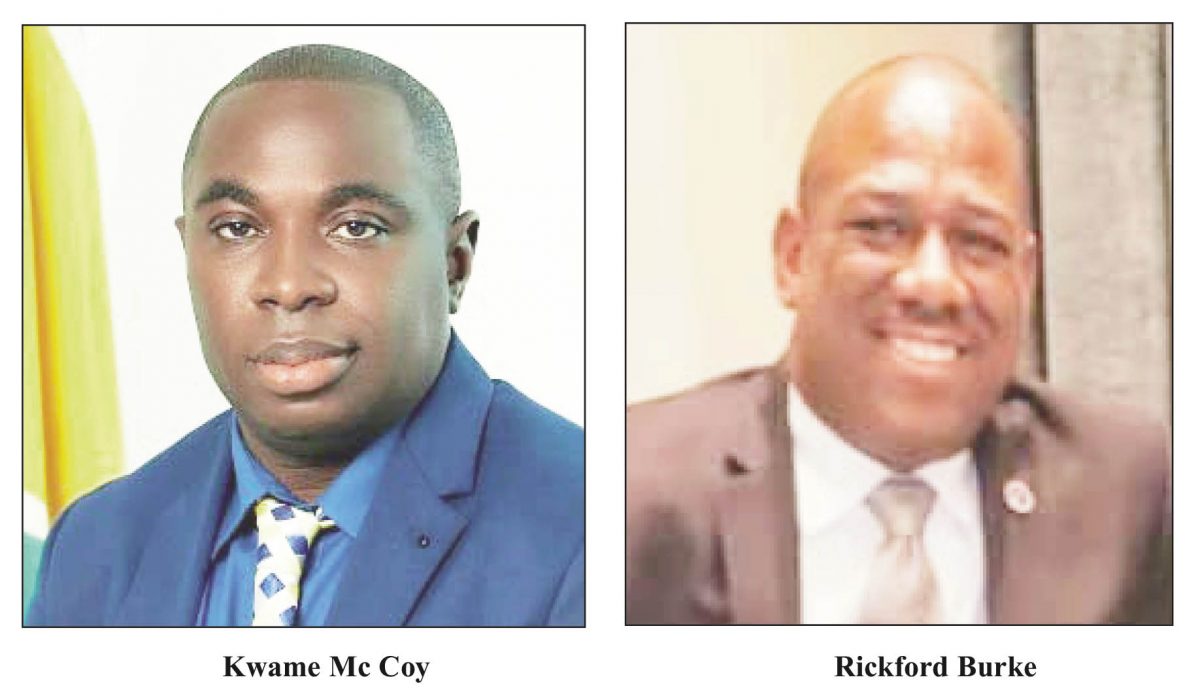As a court had found back in 2020 regarding a number of libel suits he had filed, another in December of last year also found that US-based Guyanese political commentator Rickford Burke had no evidence to support a libel suit he had filed in 2013 against then Press and Publicity Unit officer of the Office of the President Kwame Mc Coy.
In her ruling on December 16th last, Justice Fidela Corbin-Lincoln found that contrary to what the law specifically requires, Burke failed to plead the precise words complained and therefore failed to prove their publication.
He was ordered to pay McCoy costs in the sum of $100,000.
In June 2020, acting Chief Justice Roxane George had ruled that Burke led no evidence to support actions brought back in 2013 as well against a number of entities including MTV, Guyana Times, and Little Rock TV.
Justice George had ruled that among other things, Burke led no evidence to support the actions brought and resultantly could not substantiate his reputation being damaged in any way.
Burke, in his claim, accused Mc Coy who was host of the programme “Straight Talk” on Channel 14/65, Multi Techno-logy Vision (MTV) of broadcasting defa-matory statements against him on January 30th, 2013.
Burke said that the statements were false, while adding that his reputation was seriously damaged by the publication.
McCoy denied the publication attributed to him.
Justice Corbin-Lincoln noted in her ruling, seen by this newspaper, that the most crucial issue in the claim was whether the defendant published the pleaded defamatory statements; which she noted the plaintiff bore the burden of proving.
She said that Burke needed to prove on a balance of probabilities that Mc Coy published, of and concerning him, “the precise words complained of” to a third party; even as she sought to stress that “a plaintiff is required to plead the precise words complained and must prove the publication of the pleaded words at trial.”
Attorney Arudranauth Gossai who represented McCoy, relied on the previous judgment of Justice George and submitted that the claim against his client should be dismissed since Burke had failed to prove publication.
Justice Corbin-Lincoln noted that the best evidence of the words spoken is the recording of the programme, which Burke did not produce.
She noted, however, that the recording is not the only means by which publication of the precise words complained of can be proved; and that in the instant case, Burke relied solely on his evidence to prove publication of the precise words.
In examining those statements, how-ever, the judge said they did not plead that Mc Coy published the words stated by Burke.
Against this background, she noted that while the statement of claim and what was stated in the witness statement regarding the words that were published on “Straight Talk” were the same, Burke’s further evidence-in-chief significantly expanded the words alleged to have been spoken.
The court said that in fact, Burke’s further evidence of precisely what was said by Mc Coy on “Straight Talk” appeared to have conflated the words complained of on “Straight Talk” with the words complained of on the outlet Newsmedia.com.
The court then went on to observe that Burke referred to the publication being made on Channel 65 but then stated that it was on Channel 69.
From the casefile, the judge said, too, Burke’s evidence of hearing the “Straight Talk” broadcast himself on Channel 69 by it being shown to him by his brother and sister-in-law via Skype was not mentioned in the written witness statement.
Justice Corbin-Lincoln concluded, “in all the circumstances I am not satisfied that the plaintiff has proved that the 2nd defendant (Mc Coy) published the precise words,” complained of “as pleaded based solely on [his] evidence.”
She went further to assert, “I infer from the allegation that the words complained of were posted on a website and had a caption that the words complained of were in printed form. While the plaintiff’s witness statement states that a copy of the article was exhibited there was no exhibit attached. The plaintiff did not tender a copy of the alleged publication on Newsmedia.com at trial.”
Again, she stressed that she was therefore not satisfied that Burke had proved to the requisite standard that Mc Coy published the precise words complained of on Newsmedia.com on 30th January 2013 and therefore his claim must fail and be dismissed.
In addition to Mc Coy, Burke’s claim had also been filed against the Guyana National Newspapers Ltd (GNNL) and the National Communications Network (NCN), but he had arrived at a settlement in relation to those defendants which saw a consent order subsequently being entered.
Burke’s claim in the matters before Chief Justice George had been that from the period January 30th to January 31st, 2013, MTV, Guyana Times and Little Rock had all published libelous statements against him, with the Times making certain publications in its newspaper as well.
He had sought injunctions restraining the publication of the article and the broadcast of a news item. The court had found that he failed to substantiate all the claims he had made against the various entities.






